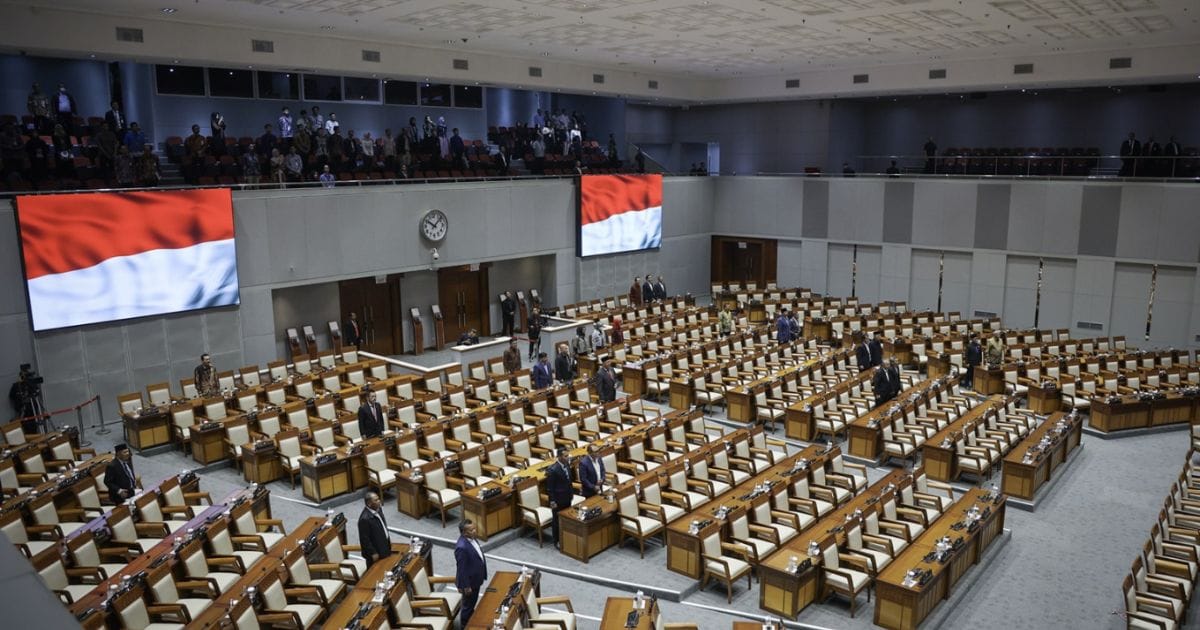Jakarta. The institutional landscape of State-Owned Enterprises ( SOEs ) management will soon undergo drastic changes. The government and the House of Representatives ( DPR RI) have approved the Draft Law (RUU) on the Fourth Amendment to Law Number 19 of 2003 concerning SOEs for second-level deliberation, or a plenary session.
The most striking change is the downgrading of the Ministry of State-Owned Enterprises’ status to a new agency called the State-Owned Enterprises Regulatory Agency (BP BUMN). This means that SOEs are no longer led by a minister, but instead are managed by a non-ministerial government agency.
This decision sparked widespread discussion, both regarding the effectiveness of governance and the political implications for the role of state-owned enterprises as the country’s “economic engine.”
Supratman: Institutions Change, Functions Remain Strong
Law Minister Supratman Andi Agtas emphasized that this change in nomenclature is accompanied by a restructuring of authority. “The institutional change, from the Ministry of State-Owned Enterprises to the State-Owned Enterprises Regulatory Agency, abbreviated as BP BUMN, is part of the strengthening effort,” he said at a joint Working Committee (Panja) meeting with the government and Commission VI of the Indonesian House of Representatives (DPR RI) in Senayan, Jakarta, Friday (September 26, 2025).
According to him, the State-Owned Enterprises Supervisory Agency (BP BUMN) still has a significant mandate: to regulate, supervise, and optimize the role of state-owned enterprises. The management authority of SOEs, which previously rested directly with the President, has now been delegated to the BP BUMN, except for SOEs with fiscal tool status, such as Perum Bulog, or companies concerned with state financial stability.
In addition, this new body has strategic authority as an investment holding guarantor—although it still requires the approval of the supervisory board.
Andre Rosiade: There are 11 main ideas
The Chairman of the Working Committee for the Revision of the State-Owned Enterprises Law, Andre Rosiade, added that the change in nomenclature was only one of the 11 main points of this revision.
“The first is, of course, the institutional change, from a ministry to the State-Owned Enterprises Supervisory Agency (BP BUMN). Second, the expansion of this agency’s authority is intended to optimize the role of state-owned enterprises, making them more professional and less bureaucratic,” he said.
Other points emphasized include the obligation for BP BUMN organs and employees to adhere to the principles of good governance and modern business practices. Directors, commissioners, supervisory boards, and BUMN employees are categorized as state administrators and therefore must be transparent and accountable. The Supreme Audit Agency (BPK) is given full authority to audit BUMNs, without exception.
This step is seen as an affirmation of the position of BUMN in the state structure: not merely a business entity, but also a state instrument that must be accountable to the public.
“Demotion” or Professionalization?
The change in the ministry’s status to an agency immediately sparked public debate. Many considered the Ministry of State-Owned Enterprises to be “downgraded” because it was no longer led by a cabinet minister.
However, some observers believe otherwise. Senior economist Faisal Basri, for example, has frequently advocated for more professional management of state-owned enterprises (SOEs), free from the political interference that often overshadows ministerial positions. According to this logic, the abolition of ministries could be seen as an effort to reduce the politicization of SOEs.
State-owned enterprises (SOEs) have often been viewed as “political hotbeds”—from appointing commissioners based on political affiliation to assigning projects that prioritize government interests over business efficiency. With the new structure, it is hoped that this pattern can be curbed.
However, the big question remains: will BP BUMN truly be independent, or will it simply change its clothes without reducing its old practices?
Economic Implications: From Audit to Investment Holding
One of the key points of the revised State-Owned Enterprises Law is the affirmation of BPK audits for all state-owned enterprises. Oversight of SOE finances has often sparked debate: whether they are purely private legal entities (Persero) subject to corporate regulations, or state entities that must be transparent like public institutions.
With this revision, the position of state-owned enterprises (SOEs) is increasingly clear: they remain companies, but they are not free from their status as state administrators. This means they will have greater scope for public oversight.
Furthermore, the establishment of a new agency authorized to guarantee investment holdings paves the way for more structured management of SOE portfolios. The holding, originally initiated by the Ministry of SOEs, now has the potential to be more focused, as it is directed by a dedicated regulatory body that is not subject to the hustle and bustle of cabinet politics.
However, challenges remain. From a business perspective, state-owned enterprises still face the burden of public assignments, which often makes them less competitive than private companies. Meanwhile, from a political perspective, the loss of ministerial positions may not necessarily reduce intervention.
The Long Road to Professionalism
If passed in the upcoming plenary session, the revised State-Owned Enterprises Law would constitute one of the biggest institutional changes in the past two decades. Ministries previously headed by political figures—from Tanri Abeng to Dahlan Iskan to Erick Thohir—would disappear from the cabinet.
In the short term, the transition to a state-owned enterprise management body (BP BUMN) could create uncertainty, particularly regarding coordination with other ministries. However, in the long term, there is an opportunity to restructure the relationship between state-owned enterprises and the state: making it more professional, more transparent, while still functioning as an instrument of development.
The question is: can BP BUMN truly become an independent “state business regulator,” or is it simply a change of name without substantial reform? The answer will significantly determine the future of more than 100 state-owned enterprises that control the lives of many, from electricity and food to transportation and banking.
What’s clear is that the public is now waiting to see whether the revision to the State-Owned Enterprises Law will truly strengthen governance or simply create a new face for an old problem.

Comments